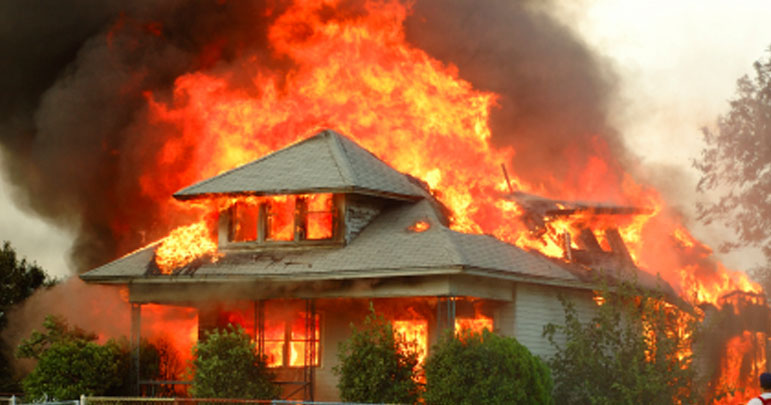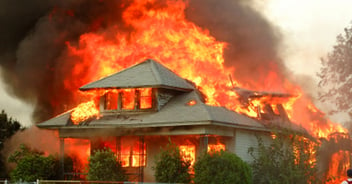A fire can strike at any time and do catastrophic damage to your home, and possibly even an entire community. When your home has been damaged in a fire, you will want to contact your insurance company to file a claim for the damages and losses you suffered. Your insurance policy might cover the repairs for damages to the house itself only, or if you have a more elaborate policy, it may also cover losses you suffered.
How Many Fires Happen Each Year?
The U.S. Fire Administration says there were over one million fires in the country last year. The fires led to 3,400 deaths, 14,670 injuries, and approximately $23 billion in losses. Residential fires account for about 77 percent of fire-related injuries, 73 percent of deaths, and over 54 percent of financial losses from fires. Of these residential fires, over half of them were caused by cooking and 9.1 percent were caused by heating incidents.
With fires being this common in the U.S., it is important to make sure your policy covers enough fire damages to help you recover from a fire.
What is Covered?
Most insurance policies will cover the damage to the property and its contents, and some will also include living expenses for you to stay somewhere while your home is being repaired. Your policy is also likely to include damages from smoke.
A standard homeowners insurance policy will also cover damages caused by firefighters when they are extinguishing the fire. This includes any mold damage that may be incurred as a result of the water putting the fire out.
If you have any detached structures, like a garage, shed, or fence that is usually covered under an insurance policy as well.
If your car is damaged from a fire in your home, that is covered under auto insurance instead of homeowner’s insurance; depending on the type of auto insurance you have.
Since wildfires have been occurring frequently in recent years, it is important to make sure your insurance policy will cover it. Read your policy or check with your insurance company to see if you are already covered, or if you need to have wildfire coverage added to your policy.
You may be able to get an advance from your insurance company to pay for your temporary dwelling and food, as well as so you can buy the basic things you probably left behind, like your toothbrush and something you can wear to work.
Exclusions to Coverage
Most homeowners insurance policies will cover fire damages, but there might be some exclusions or limitations in your coverage. Arson, which is when a home is deliberately set on fire by someone, is not usually covered by insurance policies. If your home is damaged because of a war, your insurance policy is highly unlikely to offer coverage.
If your home is vacant for more than 30 consecutive days, and you do not have a vacant homeowners insurance policy, fire damage in your vacant home will not be covered.




 Storm Damage
Storm Damage  Property Damage
Property Damage Appraisal Services
Appraisal Services Contact Us
Contact Us




.jpg)
 claims@ucspa.com
claims@ucspa.com Mon-Fri: 9:00am-5:00pm
Mon-Fri: 9:00am-5:00pm